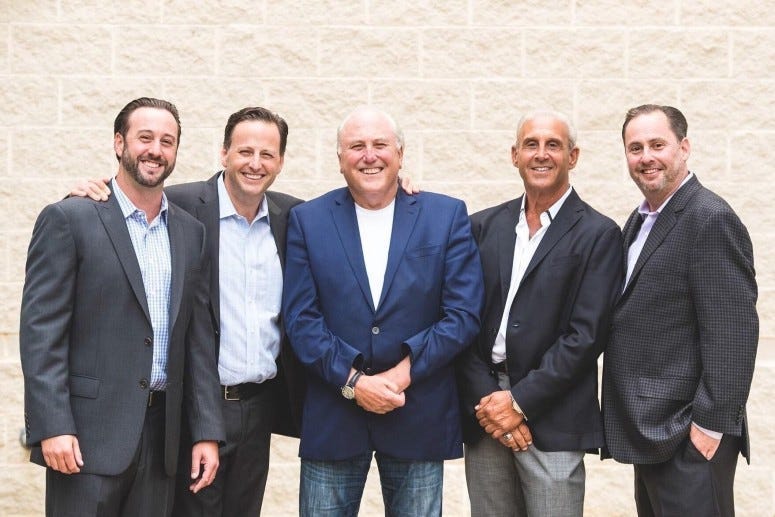
UPDATED: 4/18/20, 2:45 p.m.
Jason Ravitz is vice president of retail operations for Ravitz Family ShopRite and Price Rite.
His dad, Steve Ravitz, opened their South Jersey stores in the 1960s, and at 73, seemed to be perfectly healthy — until last month, when he got sick with COVID-19.
He died after a 13-day hospitalization.
"I mean, we weren't with my dad when he died. A nurse held his hand until he died and we talked on a phone into his ear,” Ravitz said.
He said a pandemic is a terrible time to pass away.
"The last time I saw my dad was on FaceTime in the hospital, and I knew he was hurting,” Ravitz said.
"We did Shivah on Zoom. We couldn't have a proper funeral for my father,” he added.
Ravitz said he believes his father likely contracted the virus before Saint Patrick's Day, when Philadelphia was still open for business.
"For a 73-year-old man, he took care of himself, lived on his own in Center City. He was out and about and very sociable. From a pre-existing conditions perspective, I believe about 10 years ago, he had bypass surgery,” Ravitz explained.
Meanwhile, he and his brothers haven't had a moment to grieve as they're too busy getting orders out and making sure their supermarket shelves are stocked.
Ravitz is also dealing with government business as the deputy mayor of Voorhees.
He said if there's one message his father would have had, it's to take this virus seriously.
"He would want everyone to stay safe and everyone to heed a warning from him getting it,” he added.
Supply chain problems
Getting products stocked at Shop Rite stores in the northeastern United States has not been easy this year. Ravitz said issues with the supply chain have been evident for some time now as he experiences problems getting a hold of many items.
"We're part of the co-op Wakefern Food Corporation, the largest retail food buying cooperative in the country, and I started seeing things happening in the supply chain the last week of January," he said.
As the coronavirus moved from Asia to Europe, there was a clear progression of impacted countries' buying habits, Ravitz explained.
"Those countries started buying up the international supply from the U.S., from Mexico, from Canada," he said, which resulted in shortages here. "All your paper products, disinfectants, sanitizer, rubbing alcohol, peroxide, shelf stable grocery products that could last."
"We were fortunate to have one of our consulting partners with boots on the ground all over the world. They had written up reports for us and those reports got more extensive for us as time went on," Ravitz added.
According to Ravitz, stores are now competing with each other as well as with fire departments, hospitals, and other essential businesses for what they need. "I have no idea why the federal government has not federalized the supply chain," he wondered.
And while Ravitz reassures customers that there will be food at the grocery store, as the coronavirus claims more and more lives, they're now seeing worker shortages.
"Having so many locations in the metro northeast and mid-atlantic regions, our stores have been effected by this disease significantly," he shared. "The truck drivers, the manufacturers, the warehouse workers and the retailers, we're risking our lives, we're not sleeping, to try and get food and supplies into our stores."
Trouble with staffing
As people apply for unemployment benefits, some essential businesses are having trouble retaining temporary employees.
Ravitz said their stores went into overdrive a few weeks ago.
"The first couple of weeks when people were getting furloughed, we hired a lot of people," he said.
But now that people are starting to get unemployment benefits with bonuses, their temporary workforce has dwindled just when they need employees more than ever.
Right now, his company is in talks with the NJ legislature to make some sort of an agreement that would allow people to work temporarily in essential jobs while still collecting unemployment.
"And that would be their "hazard pay" for coming out and taking a chance and working with us, that it doesn't affect their benefits," Ravitz explained, "but the hours would be limited, almost like when you retire and you have a limit or you have an issue with your pension or social security."
In the meantime, supermarkets and manufacturers are doing what they can to make sure people still have the items they need. "We've had to close departments in our store, as have our collegues, to redeploy labor throughout the store," Ravitz said.

